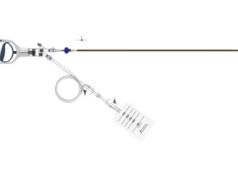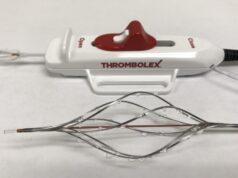
Surgery should only be offered to treat varicose veins if other less invasive treatments are unsuitable for patients, according to a guidance issued by the UK National Institute for Health and Care Excellence (NICE) on 24 July.
For the first time, NICE recommends endovenous ablation therapy as first line treatment instead of the more invasive surgical procedures currently being used. “This recognition signals a new era for the management of patients with varicose veins, who will benefit from a walk-in, walk-out procedure requiring only local anaesthetic and allowing them to return to normal activities the next day,” NICE stated in the document.
Varicose veins affect up to three in 10 adults in the UK and their impact on quality of life is comparable with that of congestive heart failure and chronic lung disease. Additionally, the burden to the National Health Service (NHS) of managing the impact of untreated varicose veins such as leg ulcers is estimated at £1bn annually.
Currently, according to NICE, there is wide regional variation treatment of varicose veins in the UK, as there is no definitive system for determining which people would benefit most from interventional treatment. There is also currently no established framework within the NHS for the diagnosis and management of the condition.
In the new guideline, NICE says that people should be referred to a vascular service if they have symptomatic primary or recurrent varicose veins; lower limb skin changes such as pigmentation or eczema, hard painful veins (superficial vein thrombosis), or leg ulcers below the knee. Duplex ultrasound should be used to confirm the diagnosis of varicose veins and plan the course of treatment.
For confirmed cases of varicose veins, NICE recommends that endothermal ablation (radiofrequency or laser treatment), should be offered. If endothermal treatment is not suitable, then ultrasound-guided foam scleropathy should be offered. If these treatments are not suitable, then surgery should be considered. Compression hosiery such as tights and stockings should only be offered if none of the interventional treatments are suitable. In addition, interventional treatments for varicose veins should not be carried out during pregnancy.
Mark Baker, director of the Centre for Clinical Practice at NICE, said: “This guidance sets out the options for patients and their physicians to treat the individual symptoms of each patient so that no matter where they live, they have access to the therapy that’s right for them.”
Alun Davies, professor of Vascular Surgery and honorary consultant surgeon, Imperial College and Imperial College NHS Trust, Charing Cross and St Mary’s Hospitals, London, and chair of the group which developed the guideline added: “This guideline shows quite clearly that interventional treatment for some patients who are suffering from symptomatic varicose veins is a better alternative to surgery, and is both clinically and cost effective. It will help standardise care for all those with this condition.”









